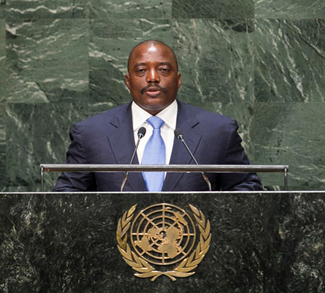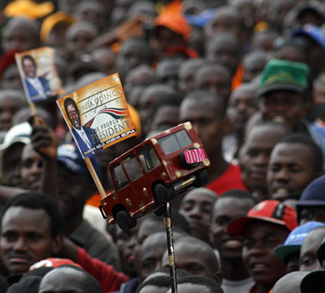Summary
Since the failure of a draft law in January 2015 allowing President Joseph Kabila to extend his rule, the Democratic Republic of Congo (DRC) has been heading for a serious showdown between the president and his political opponents.
Street clashes in September left dozens of protesters dead in the capital Kinshasa, and led the US Department of the Treasury’s Office of Foreign Assets Control (OFAC) to impose sanctions on two members of Kabila’s inner circle, who it accused of engaging in “actions that undermine democratic processes in the DRC and repress the political rights and freedoms of the Congolese people, risking further and more widespread instability in the DRC, and the broader Great Lakes region.”
Meanwhile in October, the UN Security Council was warned by UN envoy Maman Sidikou that the DRC was at ‘extreme risk’ of descending into widespread violence. Sidikou added that the number of threats which MONUSCO, the 18,000-strong UN peacekeeping mission in the DRC, now faces far outstrips its capabilities in the huge central African country.
MONUSCO has already moved hundreds of UN peacekeepers and police to Kinshasa to deal with possible outbreaks of violence after the president’s ruling party and one faction of the opposition proposed delaying the presidential election until April 2018. Kabila is constitutionally mandated to step down in December under a constitution that sets a two-term limit for presidents, but has been intentionally unclear about what he plans to do next for months.




